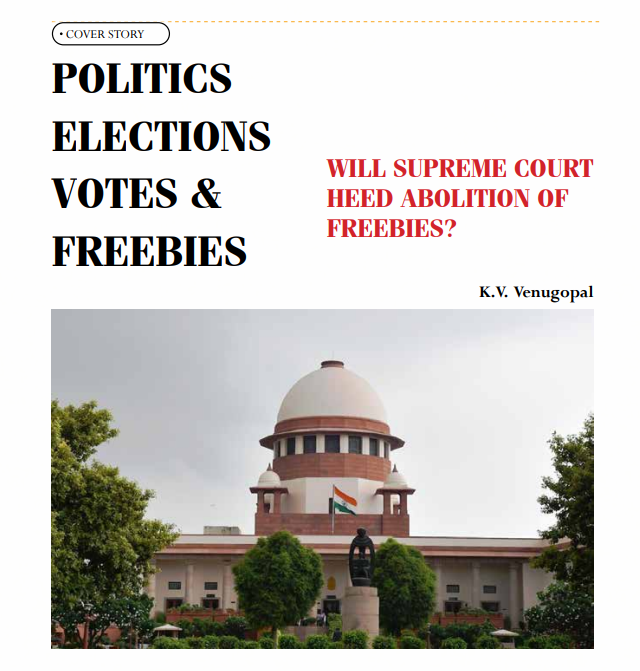
The Prime Minister Narendra Modi would not have expected in his wildest dream that his suggestion to distinguish between freebies and welfare schemes would create a huge uproar, especially from the opposition-ruled states like Aam Aadmi Party and Dravida Munnetra Kazham. Tamil Nadu Finance Minister, Palani Tyaga Rajan even went to the extent of challenging the Supreme Court after it advocated a similar opinion expressed by our Prime Minister. It was quite natural that the sensitive issue reignited the debate on the economic rationale for granting subsidies. Similar to his anger and terse comments over Chartered Accountants and the Corporate Sector not serving for the nation in the recent past, Modi traded his disgust over the freebies issue in a no-hold barred manner.
The Prime Minister is apparently piqued over the fact that the AAP swept the Punjab assembly election recently by impressing upon the people with their freebie promises, similar to their promise to the electorate before the Delhi Assembly polls earlier. The freebie debate is in progress for nearly a decade or so. For instance, in 2013, the Supreme Court, while responding to a Public Interest Litigation filed by Ashwini Upadhyay, a BJP member, who was earlier with the AAP, delivered a judgement that the promises of freebies did not amount to corrupt practices under the Representation of the People Act and directed the Election Commission to frame guidelines to ensure discipline during election campaigns. Bearing this in mind, the election commission came up with a Model Code of Conduct for guidance of political parties and candidates contesting polls to regulate freebies or promises made by parties.
However, given its complex nature and political sensitivity, the election commission’s proposal paled into insignificance. Importantly, the election commission did not initiate measures to caution the political parties to avoid mentioning freebies in their manifestos, three months before the poll, as the realization has dawned on them that it would fall on their deaf-ear. The problem compounds during local body elections in states, where the state election commission virtually has no role to play and this has become much more easier for the political parties to announce freebies in random and according to their whims and fancies.
What exactly is a freebie?
There are no worthwhile defintions so far, while the freebie debate can be tracked back to 1920s U.S. politics.While the dictionary meaning of the word connotes “a thing that is given free of charges”, it is far more complex than this. For example, the Punjab government’s free electricity for farmers appears to be freebie, even though a section of rich farmers were also benefited from the scheme. Similar is the case with free water, transport and fringe facilities for women, as it has not been specifically mentioned that only the people belonging to the poor and downtrodden community can avail such facilities. However, there is no denying the fact that it is of considerable benefit to the small and marginal farmers.
To read the further articles please get your copy of Eastern Panorama September issue @http://www.magzter.com/IN/Hill-Publications/Eastern-Panorama/News/ or mail to contact @easternpanorama.in


